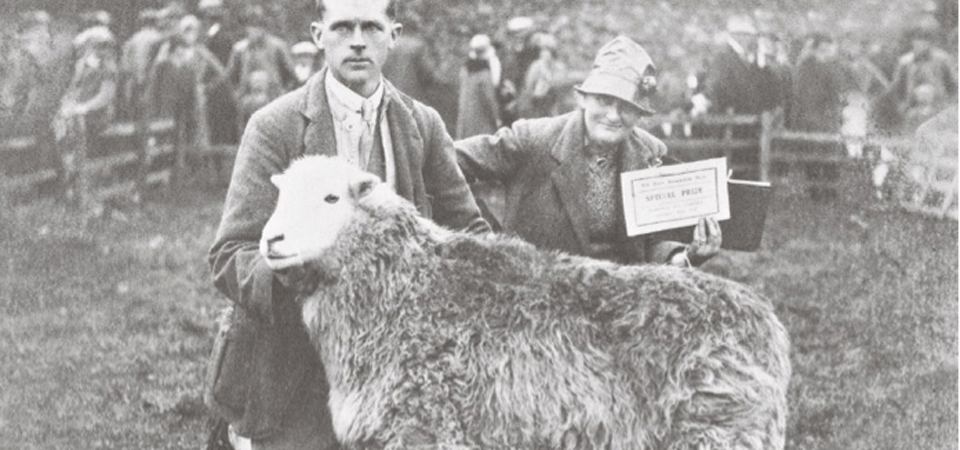- Home |
- Search Results |
- James Rebanks on the farming legacy of Beatrix Potter

Traditionally, this is the most un‑English of societies. There is still, amongst us, a rough northern form of egalitarianism not unlike that which exists in Scandinavia.
In Sweden they call it Jantelagen (the unwritten rule that forbids anyone to feel or act superior to his or her neighbour). Shepherds consider themselves the equals of anyone. The social status, wealth or fame of Mrs Heelis counted for little with Tom. They were, for all practical purposes, equals, and he was the superior party in many ways because of his specialist knowledge. When she worked on the farm (her property), she took orders from him for years.
Mrs Heelis hired an extra shepherd for lambing time each year to help Tom Storey. His name was Joseph Moscrop. He first went to help in 1926 and must have made a good impression because he was invited back every year for the next seventeen years. They wrote each other letters full of affection and friendship and mutual respect, the last one sent to him just nine days before her death in 1943. I love these letters. Ostensibly they were written in order to agree the wage for Joseph’s work, about which the haggling goes on for a long time each year, but because they are letters between friends, Beatrix also writes to him of the day‑to‑day, week‑to‑week happenings of a fell farm. Sheepdogs being too rough, waging war on the flies that make sheep suffer, the price of fat lambs, how the pet lambs are doing, whether the cattle are ‘good doers’, the merits or flaws of other sheep men, or whether Joseph knows of a good sheepdog for sale. She writes of sheep caught behind walls by snowdrifts, the falling price of wool, maggots on the sheep, shepherds being called up to fight in the war, and the state of the potato crop. Lots of the names mentioned in those letters are those of the grandfathers of the men I know now.
Mrs Beatrix Heelis died on 22 December 1943. Her death was reported in the Herdwick Sheep Breeders’ Association Flock Book in amongst the other respected members of the breed community who had passed away, a tradition that continues to this day. No more, and no less, important than the others. She would have asked for no more.
Her will is a remarkable document for someone who will always be known for her children’s books. It is not really about the books, but is instead full of concern for her legacy of farms, the ongoing care and respect of her tenants and the future of the fell-farming way of life.
She put her money where her mouth was, handing fifteen farms and 4,000 acres to the National Trust. She stipulated that her fell farms should have fell-going flocks of the ‘pure Herdwick breed’. Soon after her death, her husband, William Heelis, the local land agent, sent a letter to Joseph Moscrop, asking him to come for the lambing. Joseph replied as he always had, demanding a higher wage, and Mr Heelis, who didn’t know about the friendly haggling game between friends that Beatrix and Joseph had played through these letters for years (and being a little more formal in his social attitudes), replied to say that the suggested wages were impossible and that they should break the ‘old connection’. So neither Beatrix nor Joseph saw lambing time at Troutbeck Park again.
Beatrix Potter wrote about the smit marks on sheep in The Tale of Mrs. Tiggy-Winkle. She has the little girl asking the washerwoman hedgehog about the lambs’ coats she is washing and is told:
‘Oh yes, if you please’m; look at the sheep-mark on the shoulder. And here’s one marked for Gatesgarth, and three that come from Little-town. They’re always marked at washing!’ said Mrs. Tiggy-Winkle.
Beatrix Potter knew the three farms around the Newlands Valley where the tale is set: Skelghyl, Littletown and Gatesgarth. She knew their flocks, their ‘smit marks’, and would have known of their shepherds. More than a century after she wrote those words, we still know those flocks, but God only knows what they think of these references in Japan, where her books sell so well.